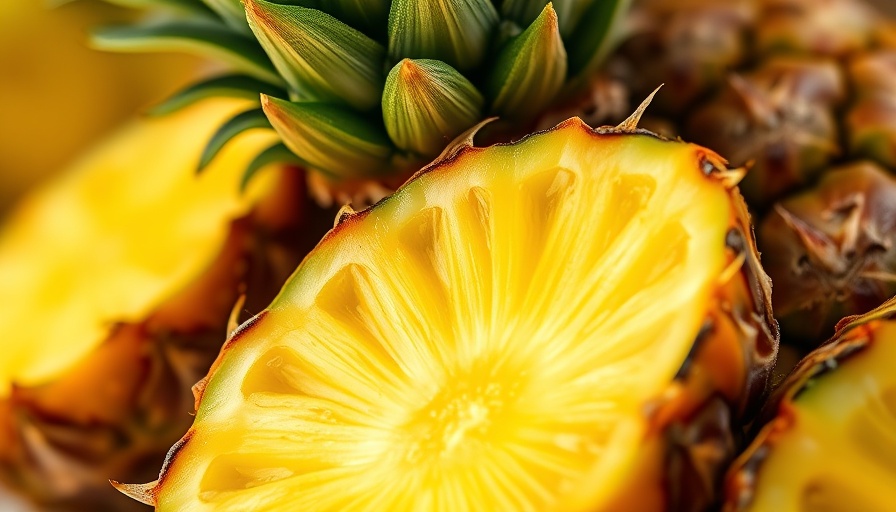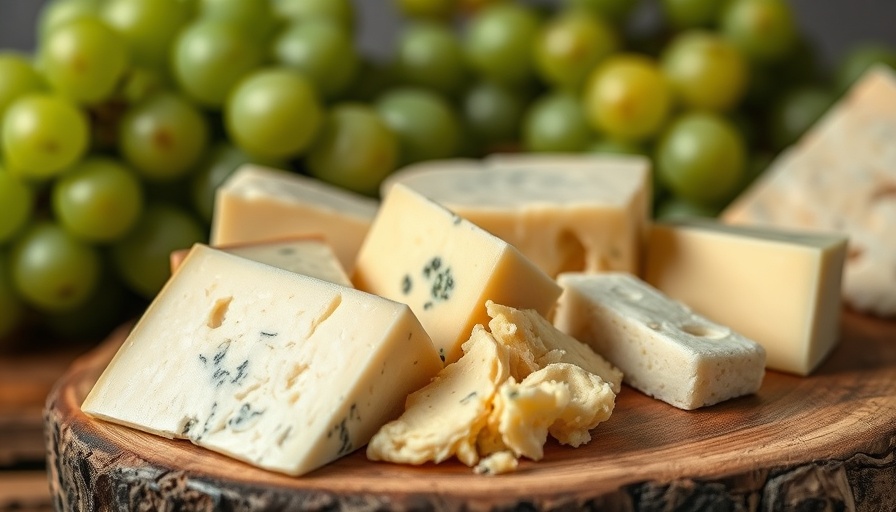
The Nutritional Powerhouse: What Pineapple Offers
Pineapple is not just a delicious tropical fruit; it is also a treasure trove of nutrients that can enhance your health. Rich in vitamins, particularly vitamin C, and beneficial enzymes like bromelain, pineapple plays a significant role in digestion and immune support. Regular consumption can be a sweet way to provide your body with antioxidants and anti-inflammatory properties, helping to fend off chronic illnesses.
How Regularly Eating Pineapple Benefits You
Integrating pineapple into your diet can positively impact your health in multiple ways. First, its high vitamin C content bolsters your immune system, making it a natural choice for those wanting to avoid seasonal illnesses. Additionally, bromelain aids in breaking down proteins, enhancing digestive health and reducing bloating—making it a wonderful addition to any meal.
Connecting to Holistic Nutrition Approaches
For local healthcare professionals and patients alike, understanding the value of functional foods like pineapple is crucial. Pineapple aligns perfectly with the principles of a balanced nutrition approach, promoting healthy eating habits that are sustainable and accessible. By considering it part of a whole foods diet, you can help guide those you're caring for towards effective natural health remedies that bolster overall wellness.
Incorporating Pineapple into Your Diet
Wondering how to enjoy pineapple more? Consider adding it to smoothie bowls, salads, or even grilled as a side dish! Its natural sweetness enhances various dishes while providing nutrients. As you advocate for clean and healthy eating in your practice, share innovative recipes with your patients to inspire a plant-based nutrition focus.
Superfoods: A Gateway to Better Health
Pineapple is one of many superfoods that can dramatically improve your health. Recognizing the power of fruits like pineapple can lead individuals to explore more about healthy fats and oils—further supporting a heart-healthy diet. Advocating for these nutrient-dense snacks, especially in a busy lifestyle, can make a difference in dietary choices.
Realizing Pineapple's Role in Wellness
For those involved in health sciences and patient care, understanding and promoting the benefits of nutrient-rich foods like pineapple not only enhances lifestyle choices but also creates meaningful communication with patients. By emphasizing a holistic approach, healthcare professionals can better equip themselves to make dietary discussions engaging and supportive.
If you've been intrigued by the potential health benefits of pineapple and want to delve deeper into holistic dietary practices, feel free to reach out! Call us at 984-238-6164 or email us at tom@mywellnesstrain.com.
 Add Row
Add Row  Add
Add 




Write A Comment